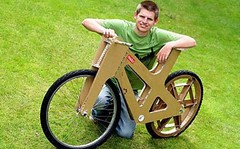- in Green Home , Parenting by Alexis Rodrigo
How To Raise an Eco-Conscious Teenager
You can encourage your teenager to be eco-conscious. Beginning early is optimal, but not essential. No matter what age your child is, it’s not too late to teach them about the environment.
Here are eight practical steps you can take.
1. Set an example
The first step is to commit yourself to a more eco-conscious lifestyle. No matter your child’s age, he or she is watching and learning from you.
2. Tap into the inner activist
Teens are naturally inclined toward activism, and enjoy having a cause to work for. Channel this tendency toward eco-consciousness – encourage your teen to volunteer with a local environmental group or project. Your teenager can also join a local group of his or her peers who are committed to environmental awareness.
3. Encourage participation
Teenagers are old enough to participate in food purchase and preparation. Give them a list and have them do the grocery shopping, which will teach them to pick out healthful foods. Then, let them prepare a meal or a dish with the foods they have purchased. This will not only give them an appreciation for the work involved in meal planning and preparation, but it will give them a new respect for food itself.
4. Learn all you can
You can’t impart knowledge you don’t have! Read up on environmental issues and the eco-conscious movement so that you can converse intelligently with your teen and answer his or her questions.
5. Do hands-on activities
Hands-on activities can be powerful teachers. Have your teenager make his or her own cloth tote in a simple sewing project, using outgrown or worn-out clothing if you can. (These sewing projects could be given as gifts, too, continuing the lesson on frugality that goes along with being eco-conscious.) Encourage your teen to participate in fixing things around the house, teaching him or her to shun excessive consumerism and refurbish before replacing.
6. Seize teachable moments
Whether you are at the farmers’ market, cooking, recycling, etc. you can seize the moment to make brief comments (teenagers dislike lectures!) about the process and what it means.
7. Create habits
Once a behavior becomes a habit, it is no longer a chore. Make it a habit to limit water use by taking shorter showers, for example. One important chore-turned-habit is recycling. Once it becomes a part of your lifestyle, your teen will take those habits into his or her own independent life.
8. Grow stuff together
Indoor or outdoor gardens are a good way to teach your teenage child about the earth and what goes into growing plants. If possible, grow herbs or food so that your teen can see the “full circle” of first sprout to table.
Weave these strategies into your daily life and, before you know it, your teenager will be an eco-conscious citizen of the world.
![]() photo credit: SOCIALisBETTER
photo credit: SOCIALisBETTER
If you liked this post, submit your email address below to get new posts by email:

